Hurricane Dorian turns northward, slamming Florida with strong winds and rain
Dorian, a Category 2, is moving north along the eastern coastline of Florida.
Hurricane Dorian is moving northward, pummeling Florida with strong winds and bands of heavy rain as it makes its way up the Sunshine State's east coast.
Now a Category 2 with sustained winds of 105 mph, the slow-moving storm is expected to turn its wrath on Georgia and the Carolinas later this week.
The University of Florida canceled classes for Tuesday and Wednesday and more than 10 Florida airports were shuttered as the storm moved in.
"If you are in the evacuation zones" along the coast, "the time to leave is now," South Carolina Gov. Henry McMaster said Tuesday, warning that a western shift of just a few miles could bring enormous damage to the state.
"Prepare for the worst," he said, and "pray for the best."
President Donald Trump tweeted, "The U.S. may be getting a little bit lucky with respect to Hurricane Dorian, but please don't let down your guard."
'A historic tragedy'
Dorian barreled to shore Sunday afternoon in the Bahamas as a Category 5, making the strongest Atlantic hurricane landfall on record.
The storm hovered over the Bahamas for nearly two days, causing unprecedented destruction, submerging an airport, leveling buildings and killing at least seven people on the Abaco Islands. Bahamas Prime Minister Hubert Minnis called the islands "decimated" and said "we can expect more deaths to be recorded."
Minnis took an initial tour by air of the islands, but authorities have not been able to make a full ground assessment. "Our priority at this time is search, rescue and recovery," he said.
He said they have not yet been able to tour Grand Bahama Island, which felt the brunt of Dorian's power for the better part of 24 hours.
"I have never seen destruction like this on this scale on an island before," ABC News correspondent Marcus Moore told "Good Morning America" Tuesday from Marsh Harbour, a town in the Abaco Islands.
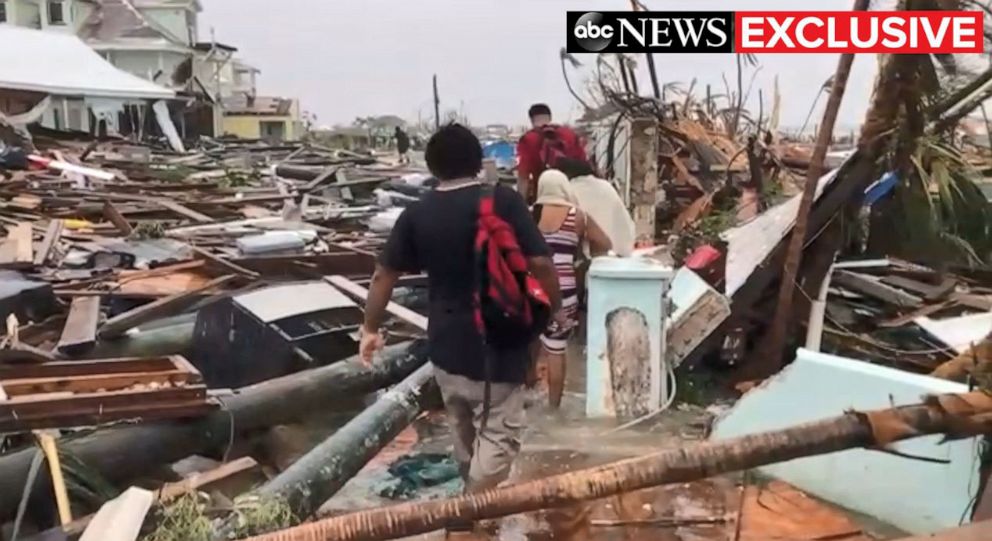
A U.S. State Department official said the Abaco Islands' Leonard M. Thompson International Airport is completely underwater.
Dorian then came to a grinding halt on Monday morning and remained at a virtual standstill over Grand Bahama, pummeling the island with howling winds and fierce rain.
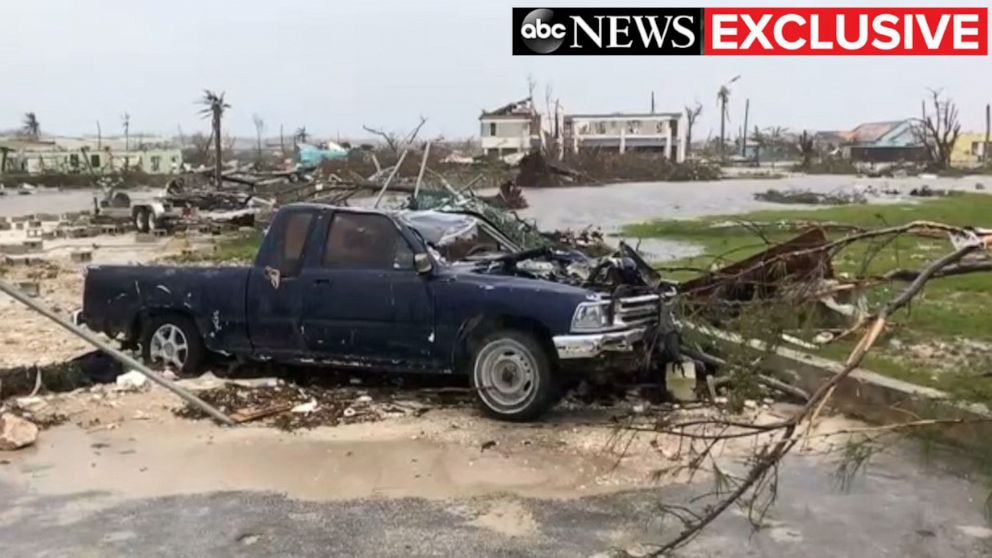
There were reports of heavy flooding in Freeport, the main city on Grand Bahama, where Grand Bahama International Airport and the city's one-story hospital are inundated with water and the main highway has turned into a river, leaving some people trapped, according to the State Department official.
Minnis described the devastation as "unprecedented."
“We are in the midst of a historic tragedy," Minnis told reporters Monday.
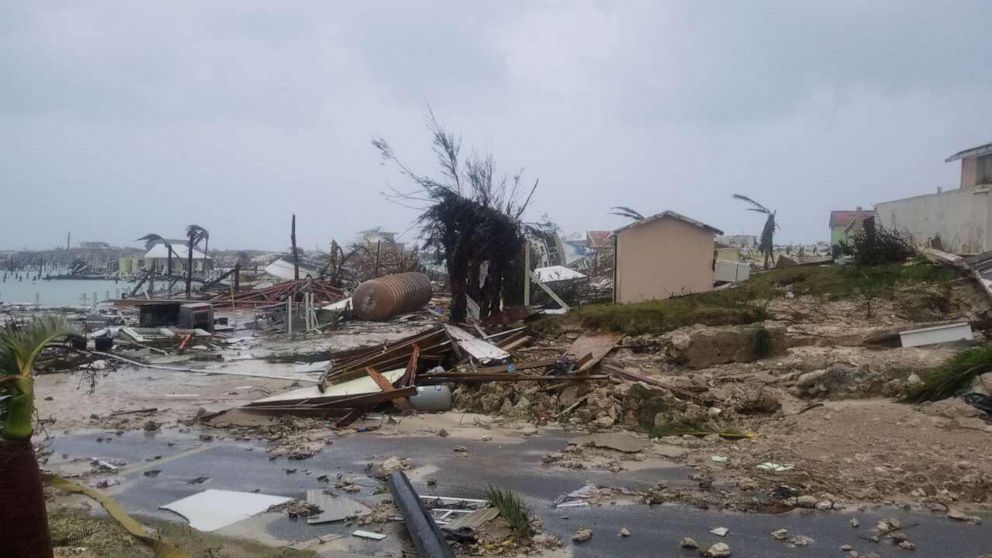
"Communication is down, we do not know what’s going on right now," Iram Lewis, a member of Parliament in the Bahamas, told "GMA" Tuesday. "Never seen anything like this in my life."
"We're gonna need living arrangements, we're actually going to need medical supplies -- our only hospital on the Bahamas, the 911 hospital, we had to evacuate that," Lewis said.
The greatest need in the Bahamas is for water, non-perishable food, generators, tents and tarp poles Bahamian Consul General Theo Neilly told ABC News on Tuesday.
"We’re receiving supplies and we’re looking for people who can assist with shipping," Neilly said.
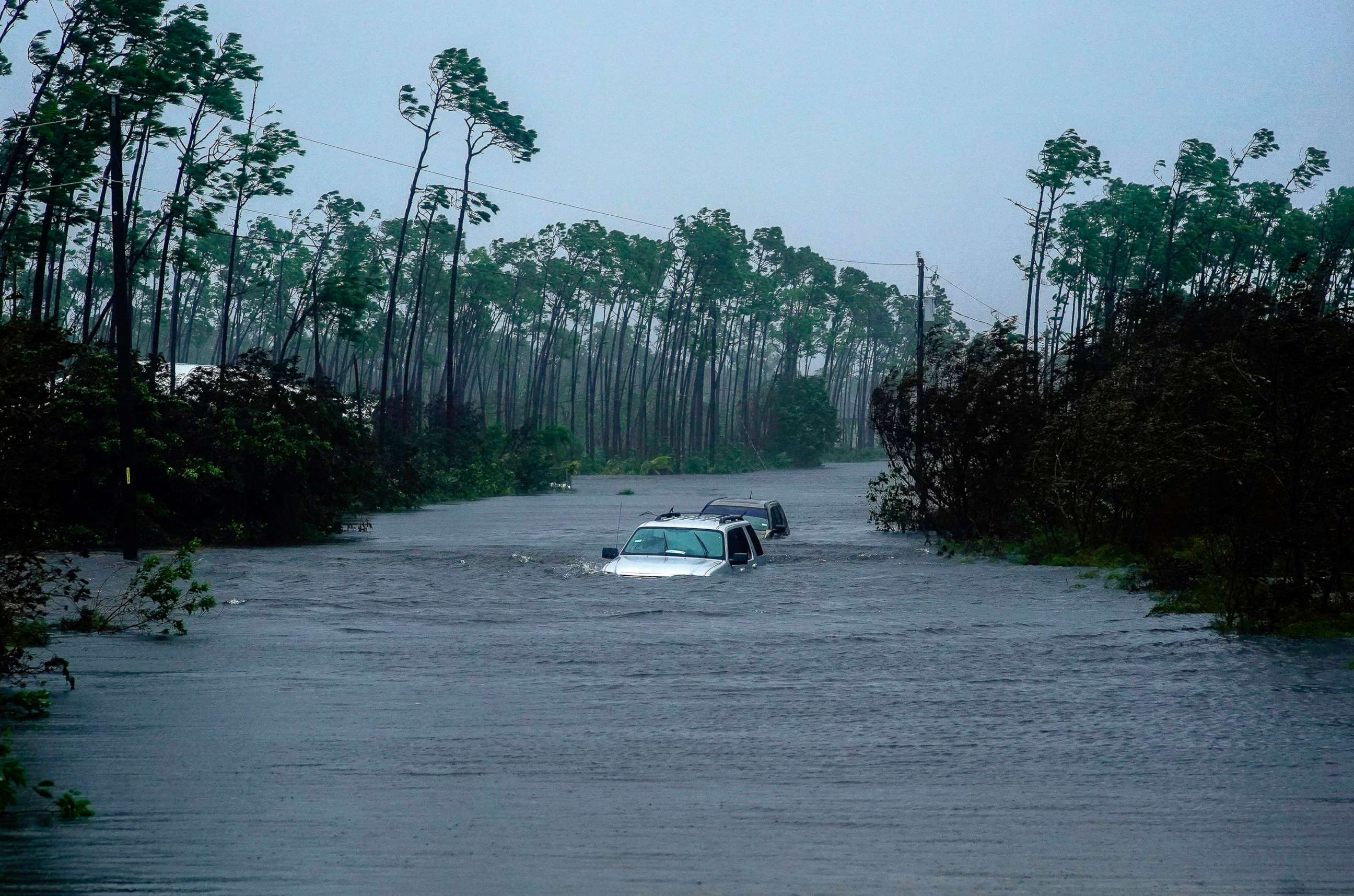
The U.S. is providing humanitarian assistance to the Bahamas, beginning with the deployment of a Disaster Assistance Response Team, according to the State Department. Minnis also said Tuesday evening a British Royal Navy vessel was arriving soon to deliver food to those in Abaco.
The Coast Guard said helicopter crews medevaced 19 people from the Marsh Harbour Clinic to the Nassau International Airport on Monday.
'The time to leave is now'
As Dorian picked up speed and inched away from the Bahamas Tuesday, it moved northwest to Florida, lashing the state's east coast with powerful winds.
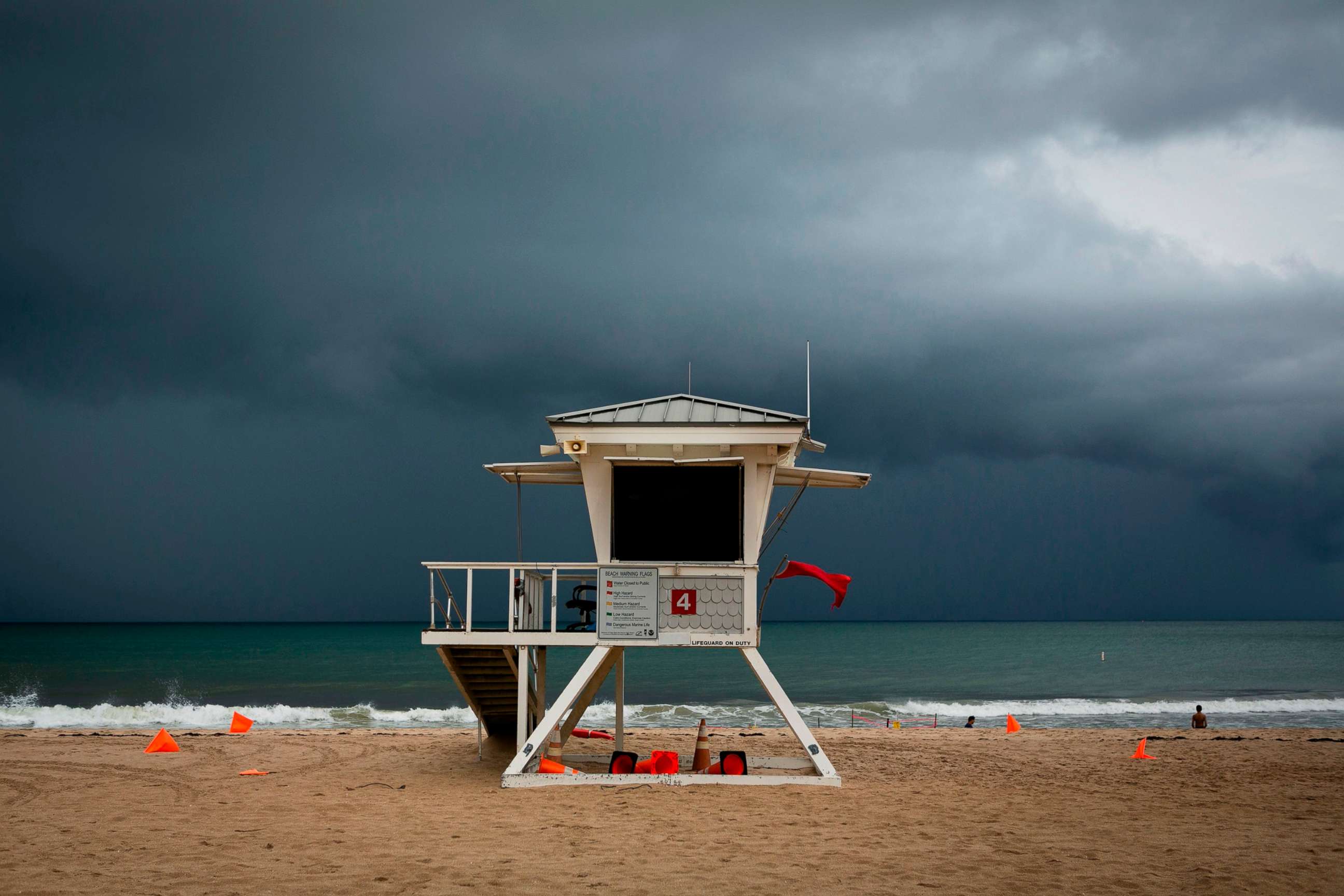
Flash flooding, storm surge, strong winds and tornadoes are all possible as Dorian moves parallel to -- but offshore of -- the east coast of Florida from Tuesday night through Wednesday night.
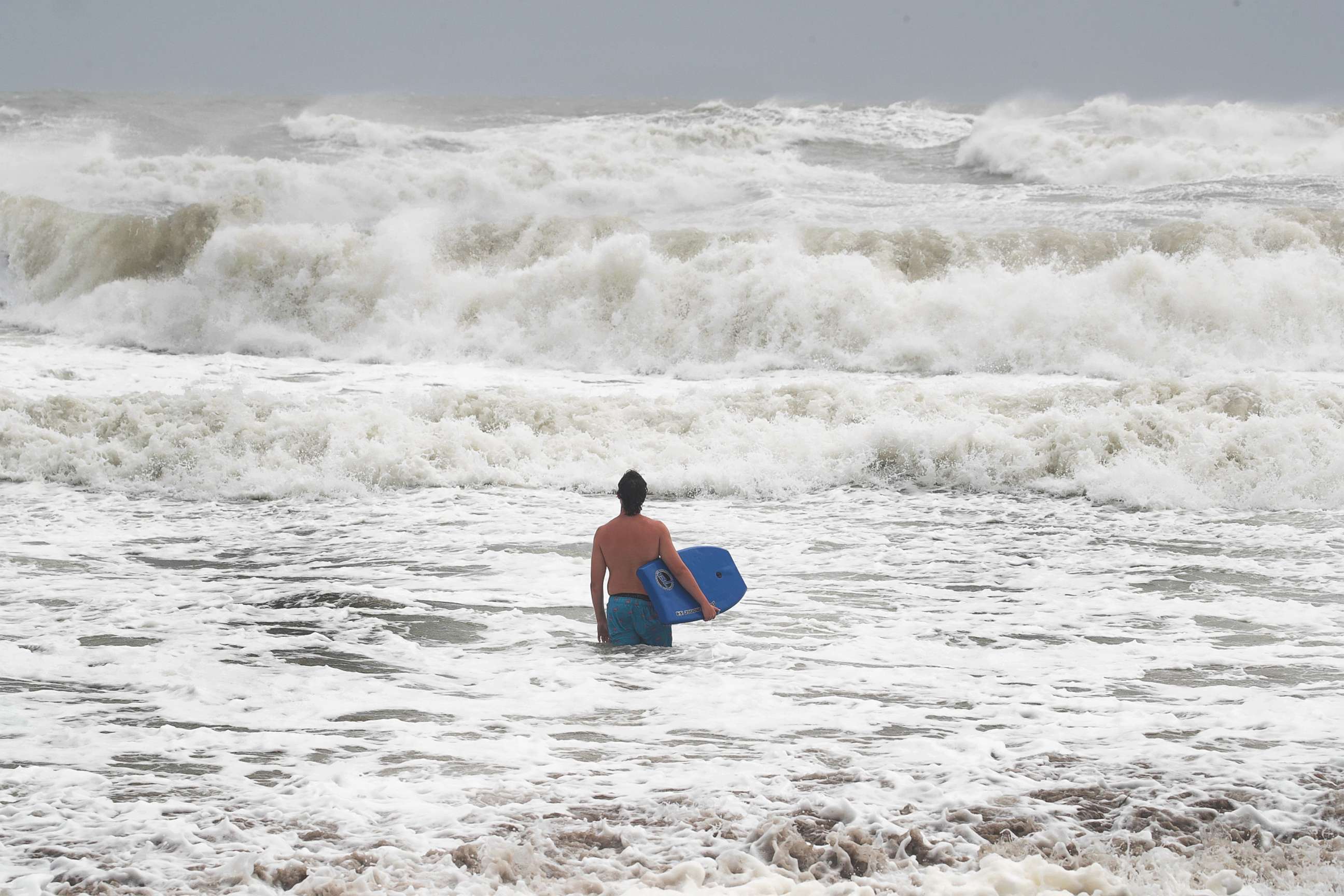
By Wednesday afternoon, Dorian is forecast to move off the coast of Jacksonville, eventually passing Savannah, Georgia, on Wednesday night.
Dorian will then inch toward the Carolinas, possibly making landfall between Myrtle Beach, South Carolina, and North Carolina's Outer Banks.
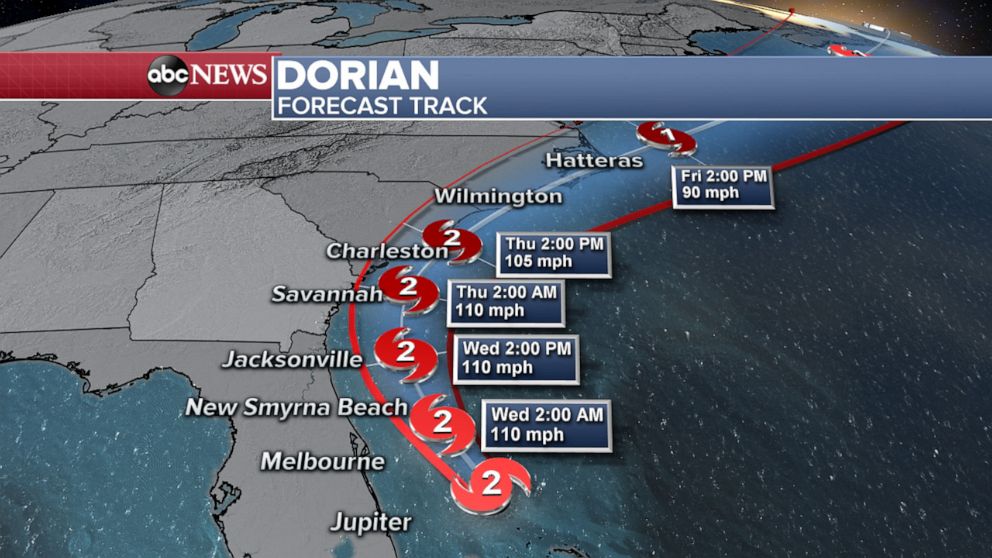
Storm surge -- which can be life-threatening -- could reach 7 feet in the Carolinas.
The heaviest rainfall from Dorian is expected to hit the coastal Carolinas, where up to 10 inches is possible.
Evacuation orders have been issued for dozens of coastal communities from Florida to North Carolina.
Allan Vandall, co-owner of a bar in Charleston, said he's stayed open for the last four hurricanes and plans to do the same for Dorian.
But his street is notorious for flooding so he said the goal is to block the floodwaters from getting in.
"If we're not prepared it would put us out of business for a year with the damage, so we take it very seriously," Vandall told ABC News Tuesday. "But we're good at it, we've been doing it for a while, so we're ready."
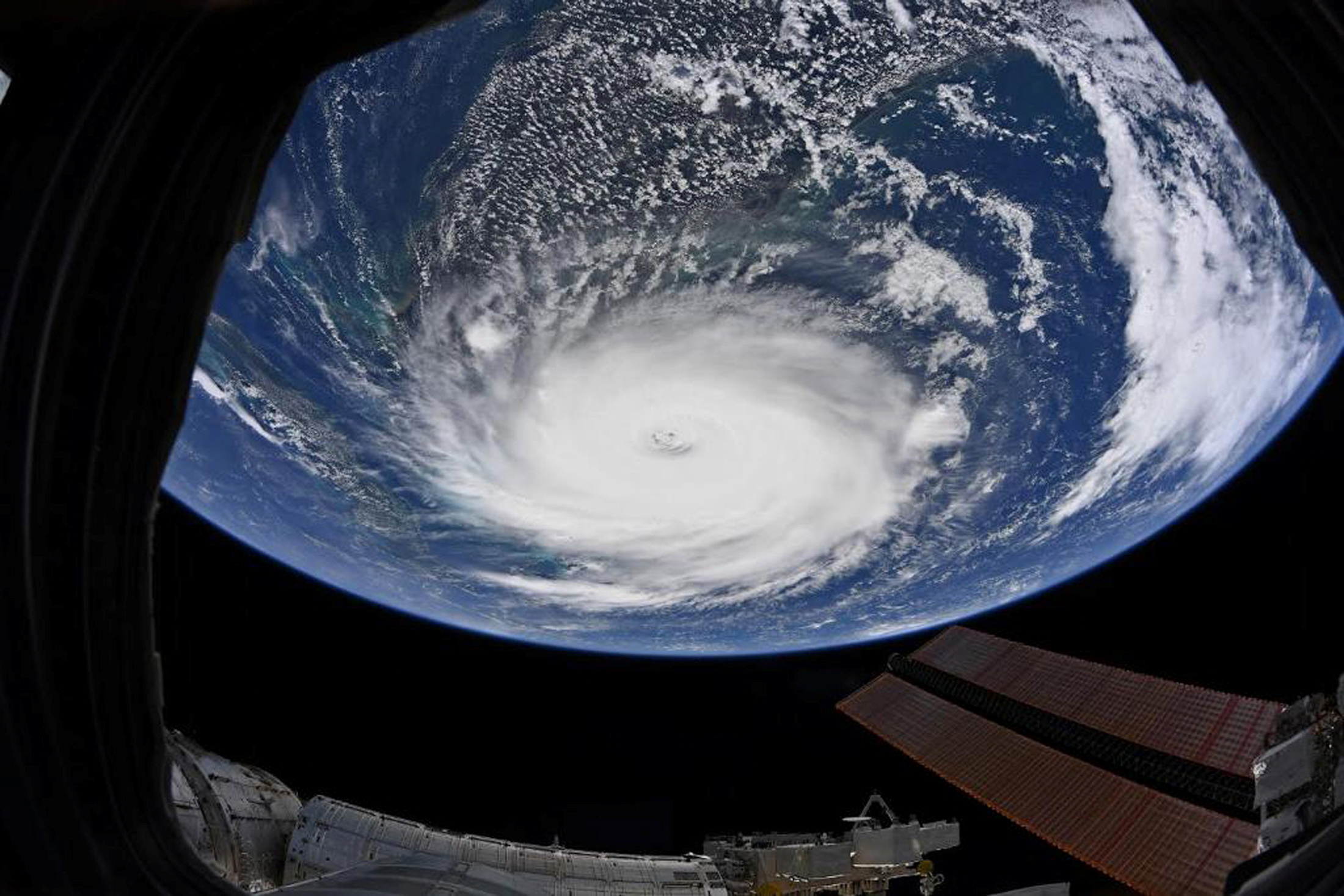
Vandall added, "it's not just the damage from the storm that's a concern -- it's the two weeks before, two weeks after that nobody comes to Charleston. Economically speaking, it hits every business hard."
As Charleston resident Tina White stocked up on sandbags Monday, she told ABC News she's not planning to evacuate.
She called Hurricane Hugo in 1989 "the benchmark."
"As long as it doesn't look like it's gonna be Hugo, we try not to go anywhere," White said. "But if it does, we will go."
"It's kind of stressful deciding whether to stay or to go, and once you kind of make the decision to say you can kind of focus on getting everything ready, and that provides some relief," White said. "Then you just kind of wait and hope for the best."
ABC News' Alexandra Faul, Max Golembo, Joshua Hoyos, Reed McDonough, Marcus Moore, Daniel Peck, Luis Martinez and Will Gretsky contributed to this report.






